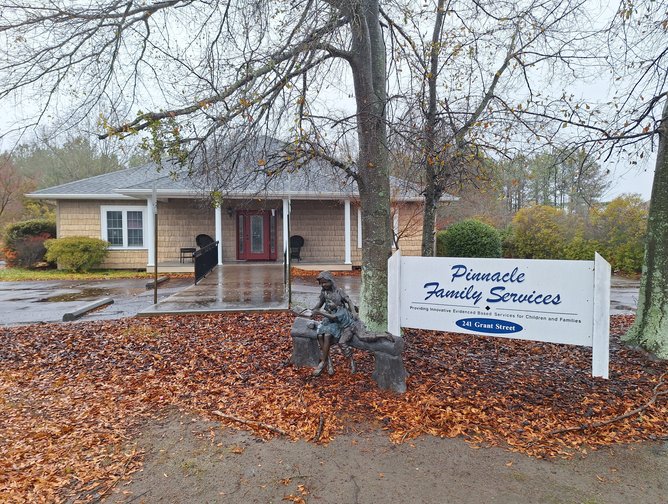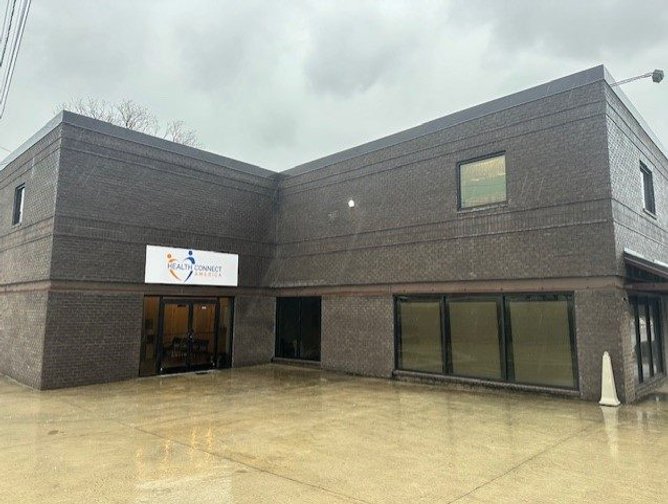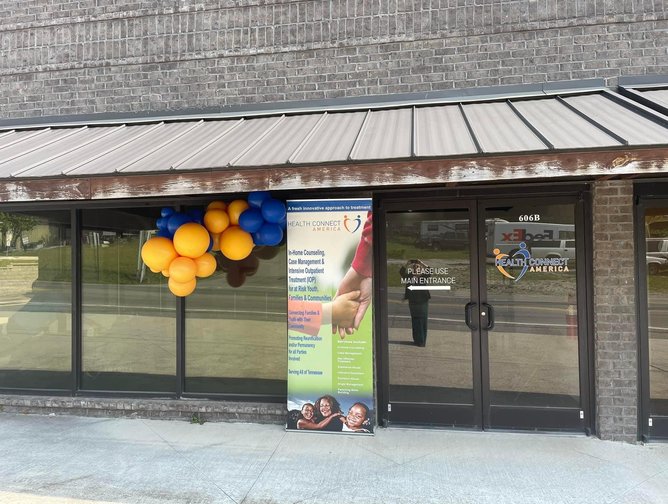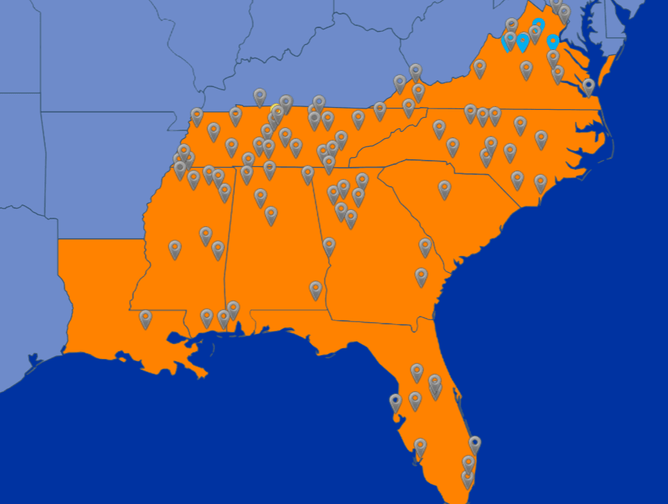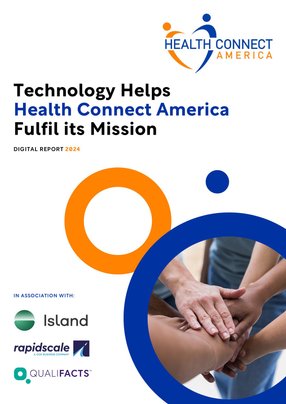Technology Helps Health Connect America Fulfil its Mission
Launched in 2006, Health Connect America started out as an in-home therapy business based just outside Memphis, Tennessee.
With a desire to grow at pace, it soon became clear the organisation needed a strategic-minded but clinically-experienced leader to turn the vision into reality.
That leader turned out to be Kristi Shain, who joined as CEO 15 years ago when Health Connect America had six small offices in Tennessee. Today, the company has no fewer than 105 offices in 10 states covering the entire Southeast of the US, based out of Franklin, Tennessee.
Remarkably, revenue has doubled over the past couple of years, but the focus remains on finding ways to improve people’s lives in the communities where they live.
Health Connect America offers a multitude of community-based core services from which tens of thousands families are benefitting.
A small handful of these services include:
- Behavioural health for children, adults and families
- Intensive in-home and outpatient therapy
- Medication and integration care management
- Substance misuse and addiction therapy
- Therapeutic foster care
- In-home assistance
“We serve a really diverse clientele focusing on those who require mental health interventions and support services,” highlights Shannon Shirk, Health Connect America’s first-ever CIO.
“Our core mission is to empower both families and individuals to lead more balanced, fulfilling lives.”
Adopting a strategic focus
As his job title suggests, Shirk heads up the technology function at Health Connect America and is responsible for ensuring the organisation is well positioned from a technological standpoint to provide high-quality care.
Despite being less than a year into the job, he reveals “great progress” has already been made, especially in the realm of data surfacing.
“What we’re trying to do is free up the team to not just firefight, but to be more tactically and strategically-focused,” Shirk explains.
“Until now, there hasn’t been a common, full-featured data lake or warehouse, or visualisation tools, so having the ability to surface the data allows us to make data-driven business decisions.
“We’re starting to automate a lot of manual processes, freeing up people’s time to work on their normal, day-to-day jobs, helping to improve people’s lives.”
Shirk admits the overall technology team within Health Connect America is relatively lean, but is pleased to report that its multi-site, multi-state support system is working effectively.
One of the big challenges facing the department is dealing with a wide variety of tech-savviness among clinicians, who range from licensed clinical social workers all the way up to PhD and MDs.
“When you talk to our clinicians,” Shirk goes on, “the feedback we receive is ‘we love the IT team – they’re always there for us, they do whatever it takes and we really appreciate them.’
“I’m super proud of our team and what they are able to accomplish.”
Technology enables mission fulfilment
Health Connect America’s small technology team has a tough job on its hands when it comes to supporting more than 2,400 clinicians in the field.
Clearly, the only way to achieve this is through effective utilisation of technology itself.
A lot of this boils down to automation of manual tasks, allowing clinicians to spend more time in therapeutic sessions with their clients.
Shirk reels off a series of questions which are continuing to put his department to the test: how can we automate paperwork?; how can we help the clinician prepare for each session?; how can we help them surface the previous session’s notes or the medication list?
“Then, on the business side of things,” he continues, “how do we surface the data we need to make data-driven decisions in an automated fashion so that we're not running everything out of a spreadsheet?”
The ultimate goal here is to build the data models and systems required for everybody to do their jobs to the highest-possible standard – even if it means someone saving just five minutes on a particular task.
At times, this might mean taking the time to train boots on the ground in how to use the technology at their disposal more efficiently.
“We’re looking at all aspects of the technology in our business and making sure we’re using it to the fullest of its capabilities,” outlines Shirk.
“We’re also listening to our clinicians when they tell us where the gaps are and what would improve their workflow and lives. Then, we figure out how to fill those gaps so they can spend more time with clients.”
A SaaS-first approach
Health Connect America has, in recent years, taken a SaaS-first approach, complementing a cloud-first strategy which had no data centres or server rooms.
The focus was not on building a technology organisation, but instead on building a support network aimed at helping clinicians on the ground first and foremost.
“I came from a very heavy product engineering background, and so I really love to build stuff,” says Shirk. “But we made a very tactical, strategic decision to not build as much as possible because we want to focus on what we're really good at: mental and behavioural health.
“There are a lot of great products out there. The only time we’re going to end up building is when there is not an off-the-shelf product on the market that directly fulfils our needs, and that’s going to be few and far between.”
All this means Health Connect America can concentrate on people and improving its clients’ lives – rather than, in Shirk’s words, reinventing the wheel when it’s already been created.
Scaling at pace
As its revenue continues to grow, technology has enabled rapid scaling of Health Connect America over the past couple of years.
Shirk’s take is that there are three main reasons for this success.
Firstly, at a base level, technology is enabling clinicians to see more clients, prepare better for every session and spend more time with each client. Secondly, it has enabled faster integration of acquisitions.
“The faster we integrate,” Shirk explains, “the faster we can reduce the variability or increase the commonality across finance, HR and IT systems, and the sooner we can become one company.”
Detailing the third contributing factor, Shirk circles back to the way technology has given Health Connect America the ability to make data-driven decisions.
“Without the data, we’re just relying on what people remember or what they say,” he adds.
“What we might think is the best way forward isn’t always supported by the data.”
Commonality and customisation
Health Connect America offers its clients a broad portfolio of services, covering a wide variety of care provision.
What’s crucial for Shirk, his team and clinicians alike is figuring out an efficient way of working in one aspect of the business and applying that to other areas.
At the same time, all stakeholders involved must keep in mind the differences that exist between cities, counties and states across the US.
“While we want to increase the commonality across the entire portfolio,” Shirk continues, “we must also have the ability to customise when needed.
“So, instead of everything being 100% customised, we’re striving for about 85% commonality and it’s that last 15% that may need to be custom. It’s about increasing commonality across the board, while, at the same time, recognising we have the ability to customise where needed on a state-by-state, county-by-county basis.”
Sharing the vision
Having a relatively small tech team means Health Connect America is, inevitably, reliant on a host of key partners to keep operations moving.
Shirk is keen to highlight Qualifacts, an electronic health record (EHR) specialist with whom the organisation has been working since the very beginning.
What’s unique about Qualifacts is its sole focus on mental and behavioural health, enabling it to stand out from the crowd of technology behemoths operating in the healthcare space.
“Having a partner which is focused on our business and can support our needs is super important,” Shirk goes on. “We’ve grown alongside Qualifacts over the years and we’ll continue to grow with them.
“They’re responsive to our needs, they provide the technology for our clinicians to improve patients’ lives and they’re able to surface the data we need to run the business. We have a really good partner in the form of Qualifacts.”
Also worthy of mention is Cox Communications and its subsidiaries, RapidScale and Logicworks, who together provide the infrastructure for all Health Connect America’s offices nationwide, including bandwidth and virtual firewalls.
On the RapidScale side of things, the firm is a Microsoft Cloud Solution Provider (CSP), meaning they provide software licences and services across the business, while Logicworks provides Azure assistance with tasks such as spinning up VMs and configuring databases.
“Cox has been a great partner,” enthuses Shirk. “We needed somebody who could scale, who's nationwide, who's used to running 24/7 businesses and can make sure we're provided the services we need in a timely manner.
“We spend a lot of time with the Cox, RapidScale and Logicworks folks, and we can really see that partnership growing in the future – especially as we're expanding and adding locations at a rapid pace.”
Avertium, meanwhile, is Health Connect America’s security partner, providing a virtual CISO, helping with HIPAA risk assessments, pen testing and HITRUST and NIST certifications, as well as offering assistance in ongoing preventative security measures.
Shirk also points to Island, which has become Health Connect America’s virtual desktop infrastructure (VDI) solution.
As a fully-secure enterprise browser, Island allows Shirk and his team to roll out the organisation’s entire corporate desktop to any device at a fraction of the cost of a traditional VDI solution.
“It’s a real bleeding edge opportunity in the virtual desktop space,” Shirk adds.
“Island is new in the market, but we’re really happy with our partnership and their ability to scale.”
The CIO concludes: “The important thing is to have partners who share your vision and goals, and in Qualifacts, Cox Communications, RapidScale, Logicworks, Avertium and Island, we’ve found that.
“We work on things together and take responsibility together when things go wrong.”
Make sure you check out the latest edition of Technology Magazine and also sign up to our global conference series - Tech & AI LIVE 2024
**************
Technology Magazine is a BizClik brand
